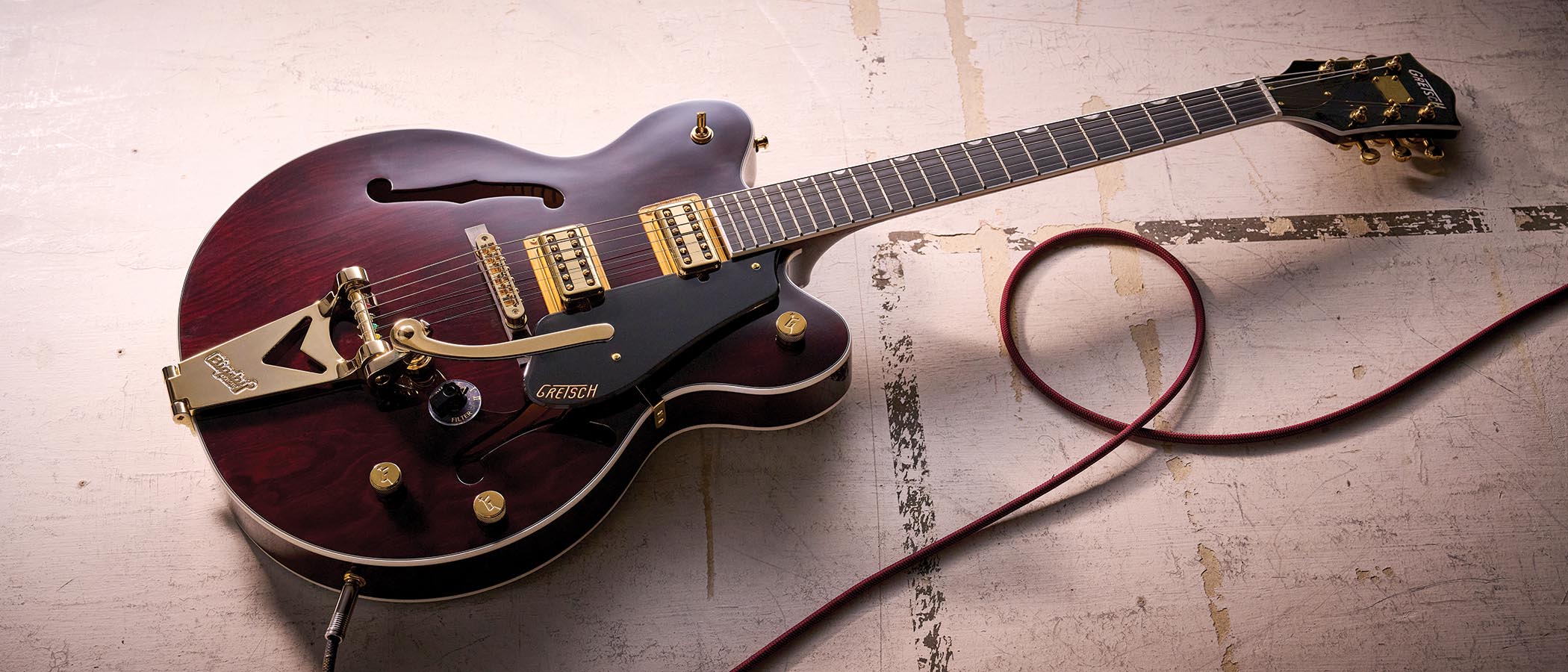A parent's guide to buying a guitar for your child: kickstart their playing journey right with our 5 essential tips
Give your child the best possible start with our top tips for buying a beginner guitar – plus our guitar recommendations
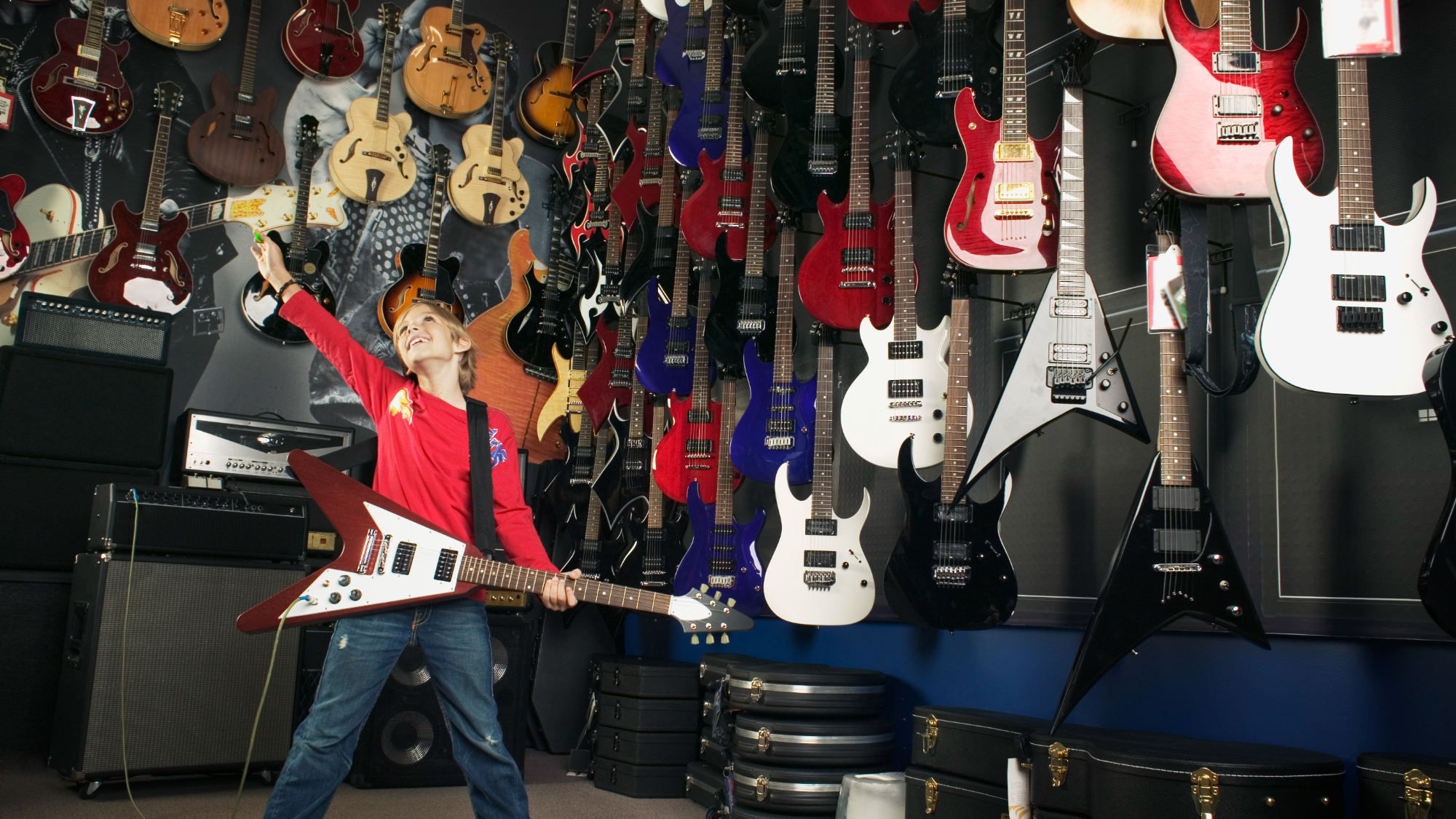
All the latest guitar news, interviews, lessons, reviews, deals and more, direct to your inbox!
You are now subscribed
Your newsletter sign-up was successful
So, your little one has aspirations of becoming a rock star, and despite not knowing your dreadnoughts from your Stratocasters, you now find yourself scrolling through pages and pages of entry-level guitars in search of the perfect instrument to kick off their musical journey. Well, don’t worry, Guitar World is here to help! We have put together this guide to buying a guitar for your child and we’ll happily walk you through the process.
We're well aware that guitar stores – even visiting them online – can be intimidating places, and guitars themselves aren’t exactly the easiest products to understand, especially if you have zero experience with them.
Below you’ll find our five key tips for selecting a guitar for your child, as well as a few recommendations to help get you started.
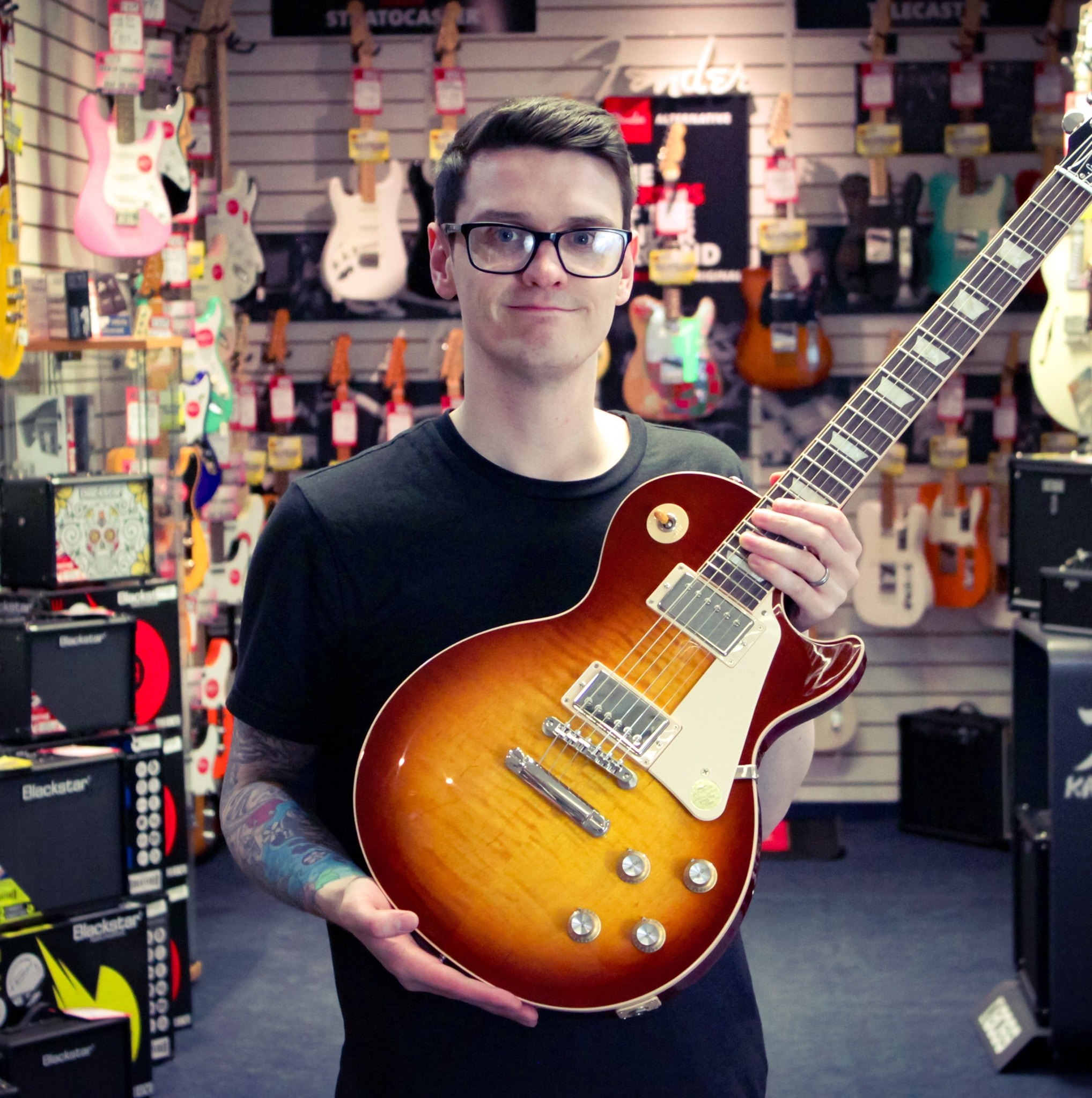
Before writing full-time for Guitar World, Daryl worked in music retail. For a little under a decade, he advised everyone from absolute beginners and their parents, to seasoned pros on the right gear for their needs. He also looks after a large number of Guitar World's buyer's guides, where he recommends products and advises on the best ways to shop for guitar gear.
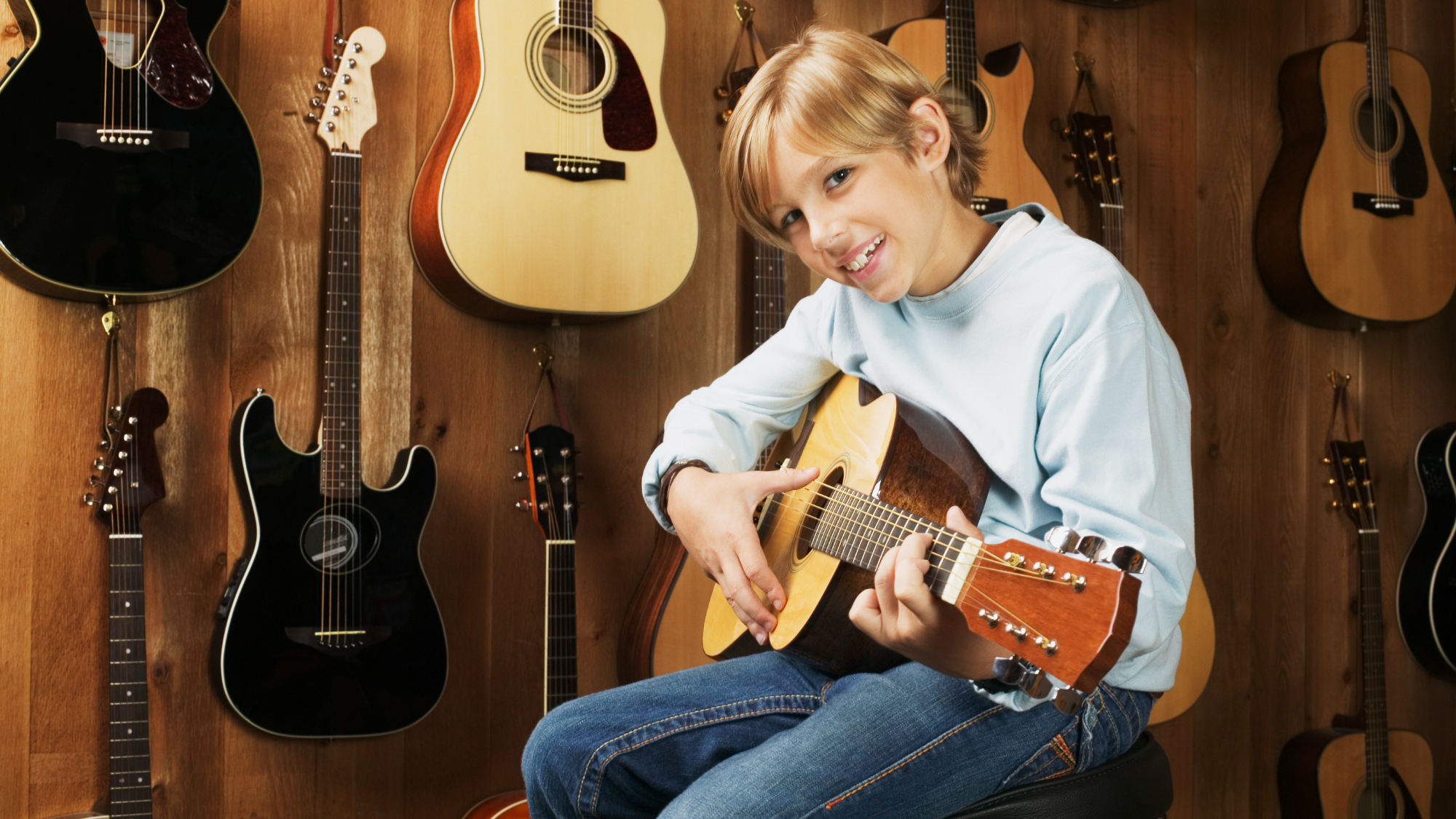
1. Be aware of your child’s musical ambitions
You can trust Guitar World
Okay, so your child has asked for a guitar – but what type of guitarist do they want to be? Guitars come in two main flavors, acoustic and electric, and the type of music your little one wants to play will determine which you should buy.
If they are rock fans with ambitions of playing face-melting solos and gut-punching riffs, then you’ll need to go down the electric route. However, if they want to follow in the footsteps of Ed Sheeran or Taylor Swift and become singer-songwriters, then an acoustic guitar is the instrument for them.
Now, you’ll hear many teachers recommend that all students start on an acoustic instrument – or worse yet, a beginner classical – but we don’t agree with this viewpoint. We believe that every student should start with the instrument they want to play in the first place. Not only will this ensure they are engaged from the beginning, but it means there’s no wasted time.
So, before you start looking at guitars for your child, have a conversation with them about their favorite artists and what they want to learn. This should inform which style of instrument you purchase.
2. Pay careful attention to the size
Guitars come in various shapes and sizes, so it’s important to select the correct one for your child. As a general rule of thumb, you want to make sure your little one can easily reach the end of the neck while in the seated position without stretching too much.
Typically we’d suggest that under 12s should opt for a 3/4 or short-scale guitar as these instruments are much smaller and easier to navigate if you only have little arms. For older kids – 12 and up – we’d recommend going with a full-sized guitar. That said, if you are going down the acoustic route, you may want to avoid the dreadnought shape, as these can be a little cumbersome to get your arm around.
If you are worried about what size is right for your child, the best thing to do is visit your local guitar store and try out a few models. You’ll quickly recognize when a guitar is too large or too small for them.
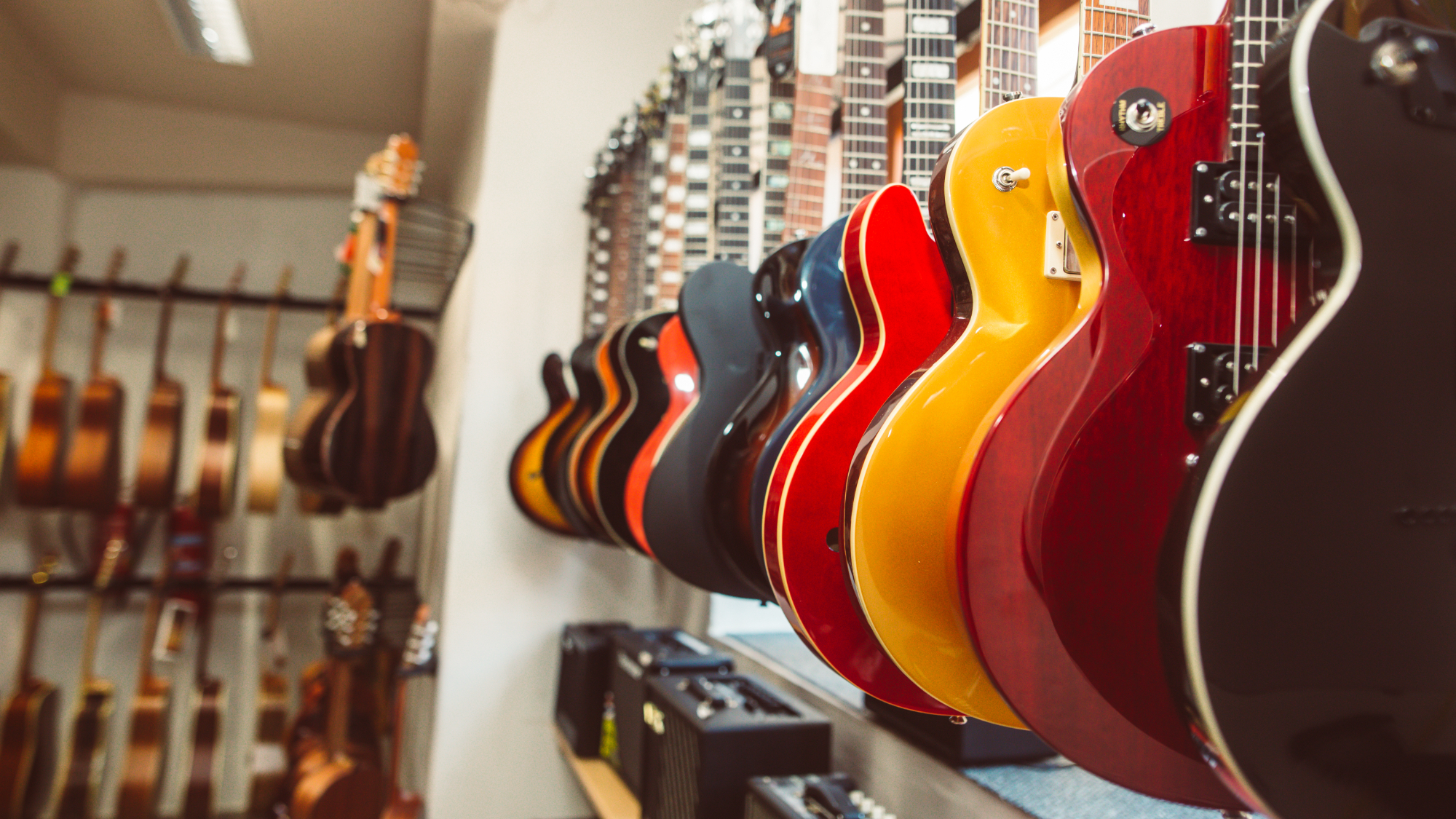
3. Price vs quality
When it comes to beginner acoustic or electric guitars, you really don’t need to spend too much to get a great instrument. That said, you want to ensure that you are buying the best quality instrument you can afford. The better the instrument's build quality, the better it will play and the more chance your little one has of sticking with it!
We highly recommend sticking to the major brands. Big companies such as Squier, Epiphone, and Yamaha will always guarantee a certain level of quality, meaning you can buy with confidence, knowing you are getting them a good guitar.
Yes, you’ll probably be able to find something a little cheaper on Amazon, but in our experience, it won’t exactly be the most playable instrument in the world – and an unplayable guitar is about as useful as a chocolate teapot!
4. Don’t forget the accessories
To give your child the best possible chance of sticking with the guitar, you’ll want to ensure they have everything they need to play properly. A selection of guitar picks, a spare set of strings, a guitar strap, a guitar tuner, and a gigbag for carrying it around to and from lessons are all must-have accessories.
Of course, electric players will require an appropriately sized practice amp and a guitar cable to connect the two.
Check out our guide to beginner guitar gear essentials and accessories to learn more.
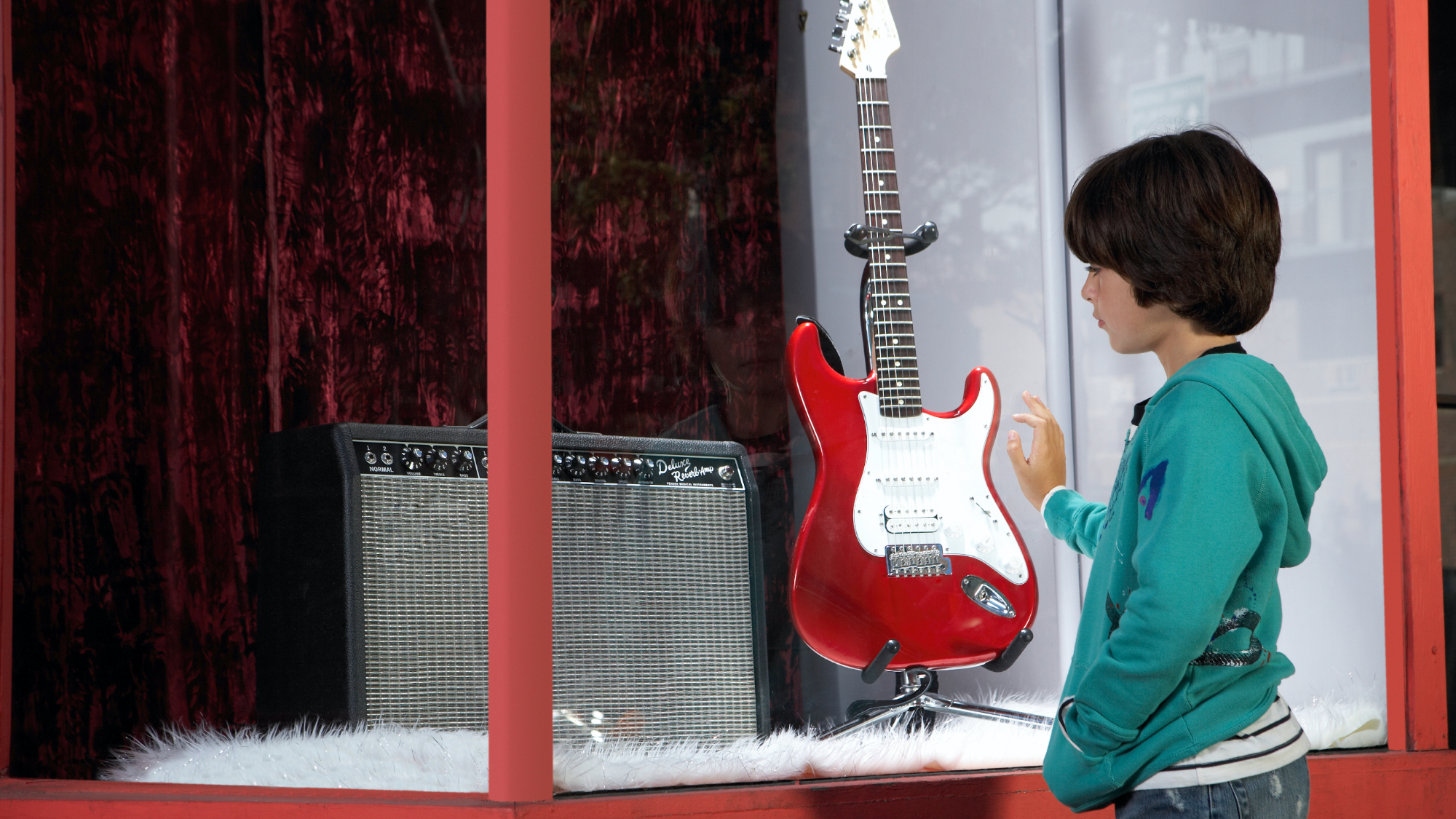
5. Get their new guitar professionally setup
The term “setup” refers to the process of adjusting a guitar to make it as playable as possible. Now, whether it’s a $100 beginner electric guitar or a $4,000 Custom Shop model, every guitar will benefit from a professional setup. This is not something you’ll be able to do yourself, so we highly recommend speaking to a professional. Your local guitar store is a good place to start.
A good setup will ensure that the action – how far the strings are from the fingerboard – is set correctly and that your child can play their new instrument with minimal effort. It will also guarantee that the intonation is set correctly and that the guitar plays perfectly in tune all the way up the neck.
Of course, there is an extra cost associated with getting your instrument professionally setup, but it can make all the difference and transform a once difficult guitar to play to one that is effortless.
Beginner guitar recommendations
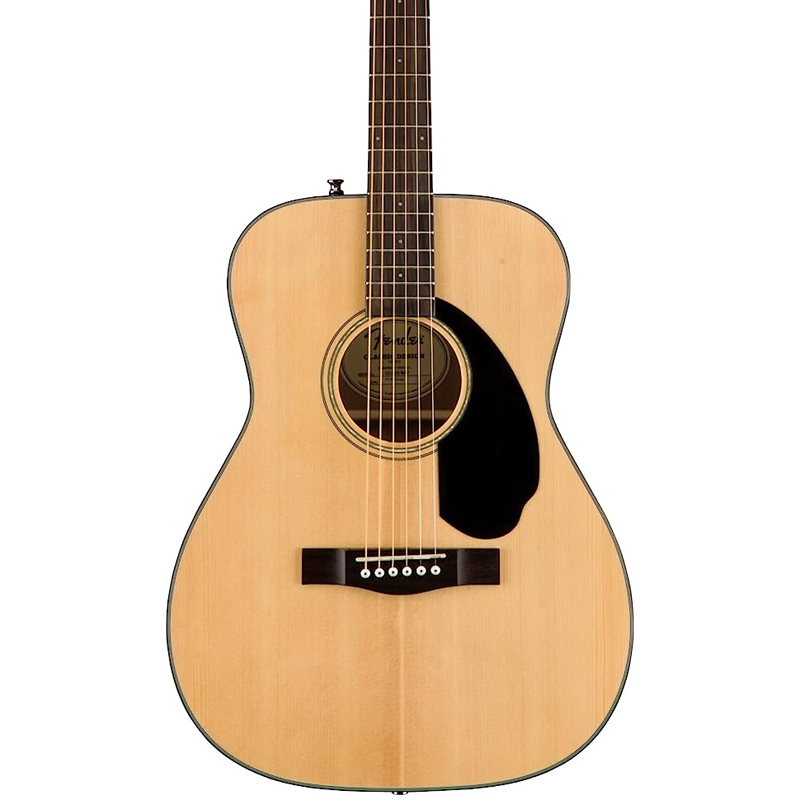
The Fender CC-60S is one of the most popular kid-friendly guitars on the market and is easily one of the best if they are looking to go acoustic.
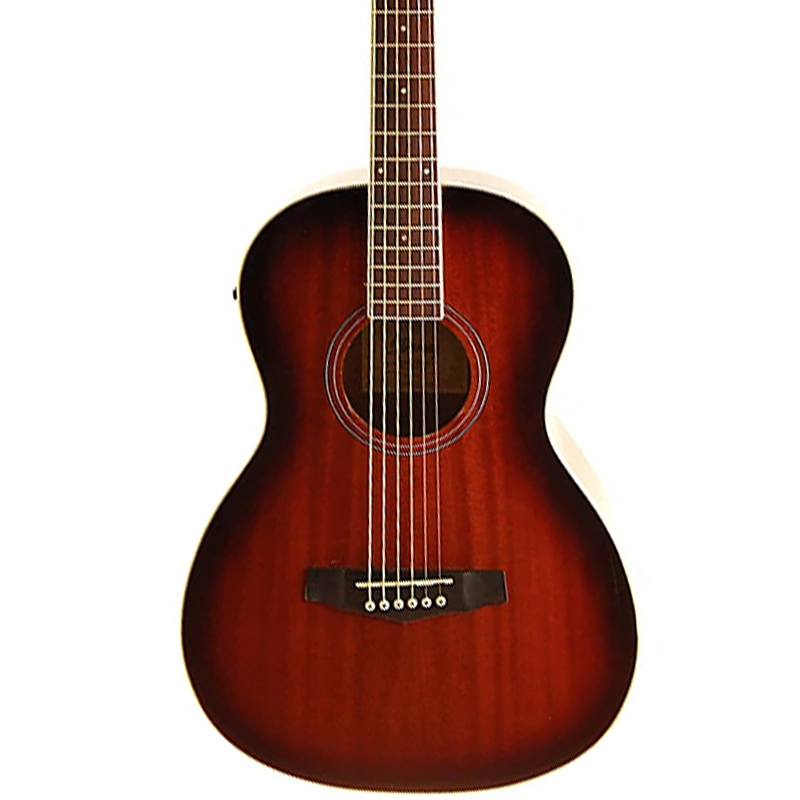
On a tight budget? Well, you can't go wrong with the PN12E. With its warm and inviting tone and comfortable parlor-sized body, this guitar offers superb value for money.
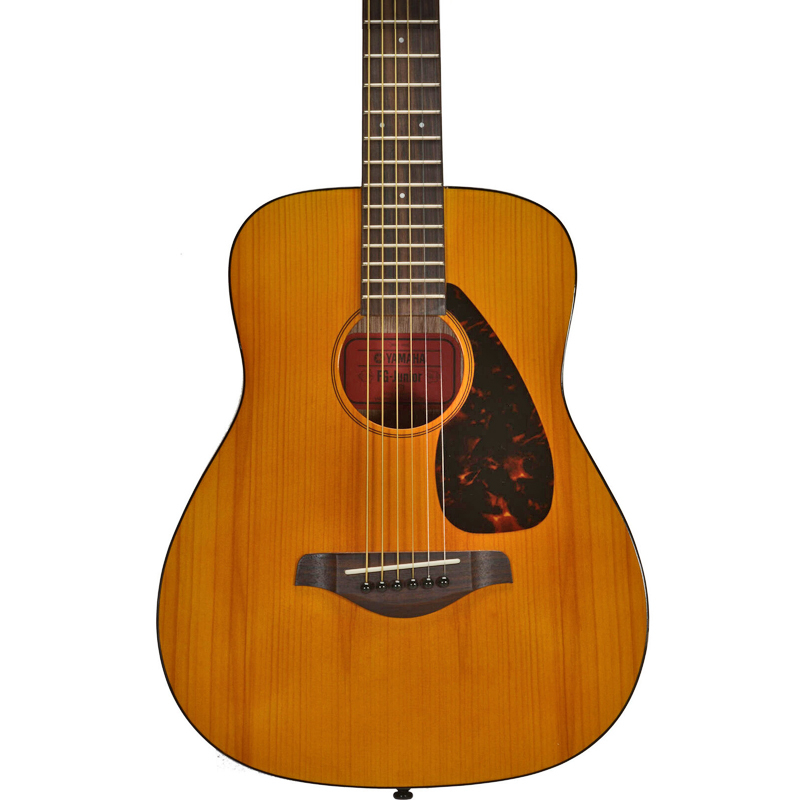
This pit-sized dreadnought is ideal for kids, as its small stature makes it easier to grasp. Of course, as it's a Yamaha product, the built quality is second to none.
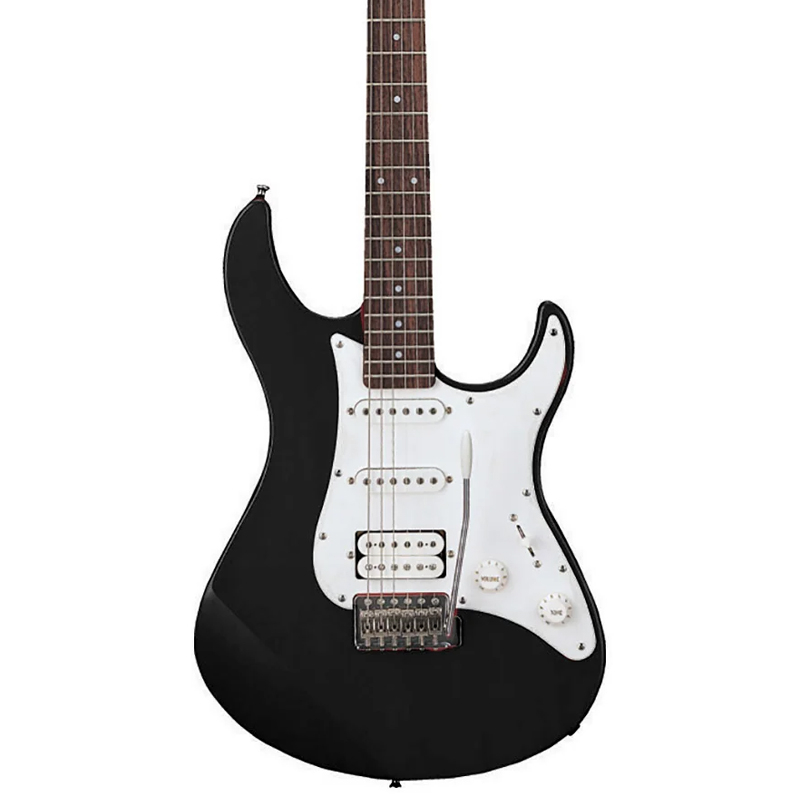
The Yamaha Pacifica has long been the go-to electric for kids and beginners and for good reason - this guitar rocks! With a competitive price, great build quality, and a variety of finish options, this is the ultimate full-sized electric for newbies.
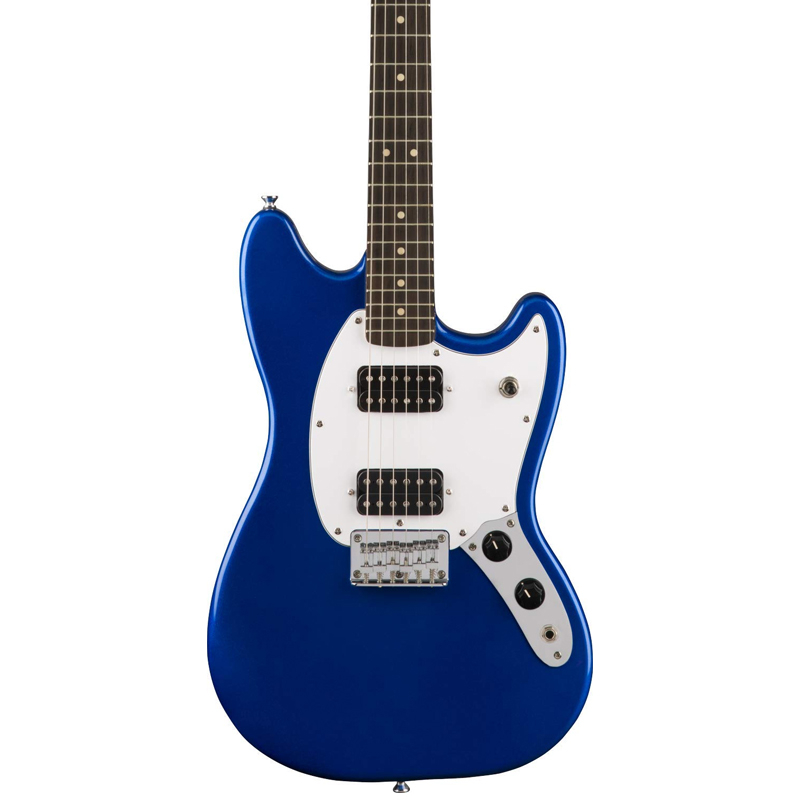
The Squier Bullet Mustang is ideal for beginners who want to get a little heavier. Loaded with a duo of humbuckers, this guitar will handle plenty of gain and is perfect for rock, metal, and so much more.
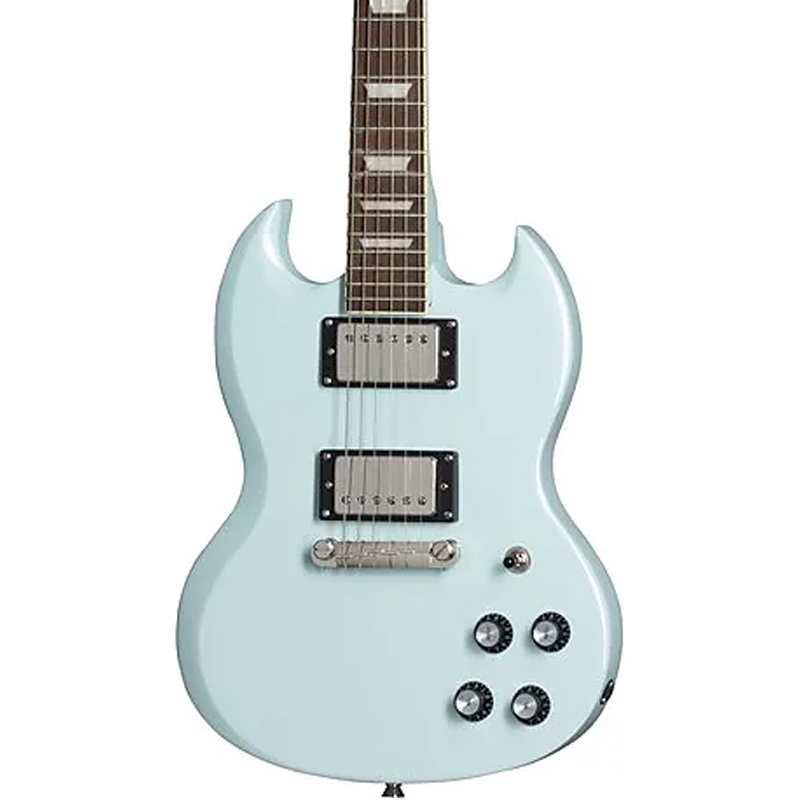
This SG is designed for young beginners, giving them a much more accessible instrument without compromising on tone and feel. This 3/4-sized Epiphone is ideal for players between the ages of 5-9.
More beginner-friendly buyer's guides
- Get started with the best guitars for kids
- Play more comfortably with the best guitars for small hands
- Need an amplifier? These are the best budget guitar amps under $500
- Try something new with one of the best beginner ukuleles
- Get all you need with the best accessories for beginners
All the latest guitar news, interviews, lessons, reviews, deals and more, direct to your inbox!

Daryl is a Senior Deals Writer at Guitar World, where he creates and maintains our 200+ buyer's guides, finds the best deals on guitar products, and tests the latest gear. His reviews have been featured in prominent publications like Total Guitar, Guitarist, Future Music magazine, and MusicRadar.com.
During his career, he has been lucky enough to talk to many of his musical heroes, having interviewed Slash and members of Sum 41, Foo Fighters, The Offspring, Thrice, and more. In a past life, Daryl worked in music retail. For a little under a decade, he advised everyone from absolute beginners to seasoned pros on the right gear for their needs.
Daryl is a fully qualified sound engineer, holding a first-class Bachelor's degree in Creative Sound Production from the University of Abertay.
